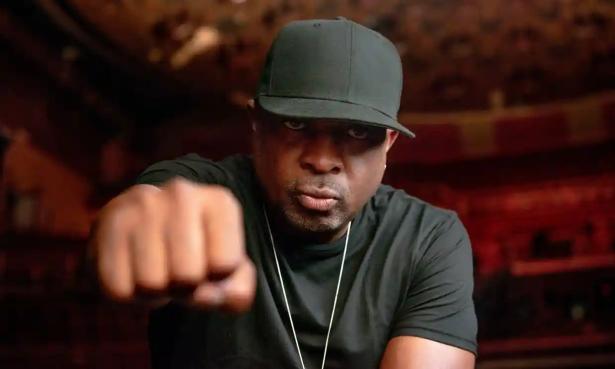tv Fight the Power: How Hip-Hop Changed the World Review – Chuck D Is a Brilliant History Teacher
There’s almost no hip-hop in the first episode of BBC Two’s new four-part documentary about the genre, a series that labours under the vanilla title Fight the Power: How Hip Hop Changed the World. Grandmaster Flash and the Furious Five only drop The Message in the last five minutes. Instead, we are given an hour-long history lesson on New York City in the 60s and 70s – the decades leading up to hip-hop’s birth.
This, however, is the correct approach, and it signals that Fight the Power will treat its subject with the respect and rigour it deserves – not surprisingly, since Chuck D of Public Enemy is an executive producer as well as one of the main interviewees. Any music documentary with ambitions to inform as well as entertain is a trade-off between sociology and musicology: the records say this and sound like that because this is what was happening in the world at the time. In the case of hip-hop, the scene was a more direct response to political circumstances than any popular music before it, and those conditions – black citizens marginalised by racist authorities – have resonance beyond the US and beyond the 20th century.
Back we go, then, to 1960, and John F Kennedy promising to improve black Americans’ life chances. By the end of the decade, their leaders were assassinated or imprisoned, their political movements infiltrated and undermined, their family members drafted into the US army and killed in Vietnam, their protests viciously put down. Fight the Power namechecks Say It Loud – I’m Black and I’m Proud by James Brown, Is It Because I’m Black by Syl Johnson and Seize the Time by future Black Panther party leader Elaine Brown as evidence of revolutionary spirit coursing through records released in 1969.
The 1970s began with The Last Poets and Gil Scott-Heron prefacing hip-hop by talking, not singing, about black power on records with “revolution” in the title. Fight the Power’s fine roster of contributors – KRS-One, Grandmaster Caz, Melle Mel, Darryl McDaniels of Run-DMC, and indeed Abiodun Oyewole of The Last Poets – recall a decade in which black consciousness continued to rise, boosted by Shirley Chisholm’s run for the presidency in 1972 under the slogan “unbought and unbossed”, and in reaction less to overt state violence and more to administrative oppression. The documentary cites the phrase “a period of benign neglect”, used by one of Richard Nixon’s advisers in a January 1970 memo to the president and taken here as summing up the period when, with social programmes persistently underfunded and the South Bronx bisected by a new expressway that seemed designed to hasten urban decay, richer New Yorkers fled the city’s astronomical crime rates and left the poor black and Hispanic folk to it.
Fight the Power’s central observation is that hip-hop comes from a community that has been abandoned. The New York police, no longer minded to intervene in poor neighbourhoods, happily allowed hundreds of working-class youths to attend block parties, at which a generation that hadn’t had the money to buy or learn to play instruments made a new kind of music by setting up two turntables, so that a funky horn motif from one record could be segued into a tight drum break from another. The documentary makes the point that one of hip-hop’s most important influences wasn’t musical: at the end of the 70s, no effort was made to stop graffiti covering every inch of the New York subway, so spray-painted slogans and art became an ocean of protest and propaganda, impenetrable to some observers but vital as a form of expression for artists and activists with no other outlet.
Graffiti was, in other words, exactly what hip-hop lyrics would soon become, and was one of the four phenomena – along with rap, breakdance and DJing – brought together by DJ Kool Herc, credited here as hip-hop’s great pioneer. Then, as the 80s began, Ronald Reagan campaigned for the presidency by visiting the Bronx – we see him verbally jousting with angry residents in the rubble – and promising more federal aid, before gaining power and instead beginning the further systematic redistribution of wealth from poor to rich. Conditions are now perfect for a fierce new genre of music to take hold, as Chuck D explains: “Hip-hop is creativity and activity that comes out of the black neighbourhood when everything has been stripped away.”
And so we arrive at 1982 and The Message, with its eerily contemporary lyrics (“Got a bum education, double-digit inflation / Can’t take a train to the job, there’s a strike at the station”). The story of hip-hop itself – some of the greatest American pop music ever made – begins next week. We’re ready.


Spread the word